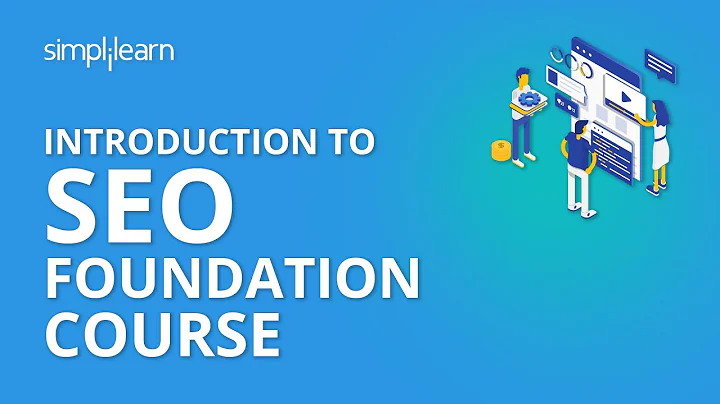Boost Your Pinterest SEO with Content Optimization
Table of Contents
- Introduction
- Understanding How Pinterest Works
- Optimizing Your Pinterest Account and Boards
- Optimizing Your Pins
- Mistakes to Avoid on Pinterest
- Dealing with Pins that Don't Perform Well
- Conclusion
Introduction
Pinterest has often been dismissed as a dead platform. However, this couldn't be further from the truth. With proper optimization and strategy, Pinterest can actually be a powerful tool for driving traffic to your website, building an audience, and growing your business. In this article, we will explore how to optimize your Pinterest content to achieve these goals.
Understanding How Pinterest Works
Similar to Google, Pinterest operates as a search platform. The platform indexes pins, reading all the data on the pin as well as the destination URL to ensure that the content matches. Pinterest aims to be a trusted source for users, providing them with relevant and high-quality content. Therefore, optimization becomes crucial to ensure that your content meets Pinterest's standards and improves your overall visibility on the platform.
Optimizing Your Pinterest Account and Boards
To optimize your Pinterest account, you need to focus on optimizing your boards. Start by choosing board titles that include keywords researched for your specific niche. Additionally, ensure that all the content on your boards aligns with the central theme or topic. Pinterest views your account as a store, where your boards act as aisles and shelves. This coherence in content helps Pinterest understand the relevance of your pins and improves their visibility in searches.
Optimizing Your Pins
Keyword research plays a vital role in optimizing your pins. Start by using the search bar on Pinterest to discover relevant keyword combinations related to your content. Pinterest also offers a trends tool that allows you to explore how keywords have performed over time. Additionally, you can utilize Pinterest ads tool to gain insights into search volumes and audience sizes for specific keywords. Once you have identified relevant keywords, incorporate them into engaging titles and descriptions for your pins. Keep in mind that while you optimize for the Pinterest algorithm, you should also aim to engage the human audience by using emotion words and power words in your descriptions.
Mistakes to Avoid on Pinterest
Several common mistakes can hinder the performance of your pins on Pinterest. These include boards that do not provide enough information about the pin, metadata that is not optimized for Pinterest, using stock images that do not align with your content, and failing to call out the uniqueness of your pins. Each of these mistakes can significantly impact the visibility and engagement of your content. Therefore, it is crucial to address these issues and optimize your Pinterest strategy accordingly.
Dealing with Pins that Don't Perform Well
Not all pins will perform as expected, but there are valuable lessons to be learned from them. Instead of deleting underperforming pins, focus on analyzing pins that have performed well and replicate the strategies that led to their success. Pinterest favors fresh pins, so it is important to continually refine your approach and experiment with new ideas. By understanding why certain pins underperformed, you can make adjustments to future pins and increase their chances of success.
Conclusion
Pinterest may have been dismissed as a dying platform, but through optimization and strategic planning, it can become a valuable asset for driving traffic and growing your business. By understanding how Pinterest works, optimizing your account and boards, creating engaging pins, and avoiding common mistakes, you can leverage the power of this platform to achieve your business goals.
Highlights
- Pinterest is a highly effective platform for driving traffic and growing your business with proper optimization and strategy.
- Keywords play a crucial role in optimizing your Pinterest account, boards, and pins.
- Mistakes like irrelevant boards, unoptimized metadata, and poor image selection can negatively impact the performance of your pins.
- Analyzing underperforming pins can provide valuable insights for future optimization.
- Continually refining your Pinterest strategy and experimenting with fresh pins is key to leveraging the platform's potential.
FAQ
Q: Can Pinterest be used to drive traffic to my website?
A: Yes, with proper optimization and strategy, Pinterest can be a highly effective tool for driving traffic to your website.
Q: How do I optimize my Pinterest boards?
A: Start by choosing relevant and keyword-rich board titles. Ensure that all the content on your boards aligns with the central theme or topic. This coherency helps Pinterest understand the relevance of your pins.
Q: Is it necessary to optimize pin descriptions?
A: Yes, optimizing pin descriptions with relevant keywords and engaging language is essential to improve visibility and attract users' attention.
Q: How can I improve the performance of underperforming pins?
A: Analyze pins that have performed well and replicate the strategies that led to their success. Make adjustments to future pins based on the lessons learned from underperforming pins.
Q: Should I delete pins that are not performing well?
A: It is not recommended to delete underperforming pins, as Pinterest collects valuable data over time that can contribute to their future success.
Resources:







